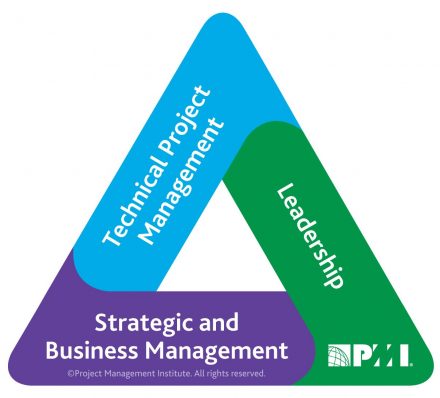Many jobs require project management skill sets and knowledge but may not have "project management" in the job title. In this column, Danielle Golinski offers advice on how students can cultivate experience prior to applying for these types of jobs.
This is one of a series of columns written by the Student Professional Development Center’s professionals who offer industry insights and career guidance.
—
By: Danielle Golinski, Assistant Director of Career Services, Love School of Business
As a career advisor, I love looking for patterns. As I work with students every single day they tell me about the career ideas they have and I mentally log the reoccurring trends.
One trend that I have seen a recent great uptick in over the past two years: students wanting to enter the world of project management after graduation. This concentration sits under the Bachelor of Science in Business Administration, Management major at Elon University. Students, in addition to their management degree, take a required set of four classes and then have the option to choose one more from a set list of other business classes.
The Talent Triangle highlights the ideal skill set for project managers and is used to help structure the track for students. All students will be eligible to sit for the Certified Associate in Project Management (CAPM) offered through the Project Management Institute at the end of the track. But, as recommended by the professors within the track, it is imperative to study as this will be a challenging 3-hour exam that will help differentiate candidates in the job market.

Some students may decide to enter a specific project management role upon graduation. There are many jobs that require project management skill sets and knowledge which may not have “project management” in the job title.
It is important to thoroughly read through job descriptions to fully capture the essence of the line of work. It may also be recommended to build familiarity within the industry first and then take those transferrable skills towards a role in project management. Some projects can be shorter term, and others can last much longer.
Both hard and soft skills are needed to be successful in the industry; understanding leadership, team creation, and conflict resolution are just a few highlights of the soft skills required. Getting exposure to Microsoft Project is one of the major hard skills needed to be successful.
Professor Matt Valle teaches the MGT 410 – Project Management – and the MGT 430 – Project Management Seminar – classes. He recommends that any student that is interested in pursuing a concentration in project management reach out to him early and declare their major early. There is also a Project Management Club at Elon, which is open to all years and all majors to be surrounded by like-minded students and dig deeper into the ins-and-outs of the industry.
“Keep in mind,” he says, “that project management is a skill that is used in all industries. It’s a useful skill and it’s a good story to tell employers.”
We are all project managers from the time that we wake up in the morning, to the time that we go to bed. We make big decisions for our day and have to navigate our life – the projects – with finesse.
Elon alum Parks King ’19 currently works as a project lead for Tower Engineering Professionals, a telecommunication and construction company in Raleigh, North Carolina. He started as a project management construction intern while he was at Elon and it rolled over into his first full-time job after graduation.
King notes that no two days are ever the same and that it is a major communication role. Being available and able to text, call and email all day with various stakeholders takes time, but being able to see the whole picture is a valuable skill set. Parks further states that it’s important to have the right temperament for this industry and not only does one have to manage and oversee projects, they also have to manage and be responsible for people.
Empathy is one of the biggest traits that he has learned about on the job. He recommends for any student interested in project management to pay attention to the upper-level classes and to get exposure and practice in speaking with professionals to further your professional skill set.
Jamie Schatz ’10 serves at a project manager at SPF Investment Management in New York, New York. She recently transitioned into project management for the hedge fund after working at Credit Suisse for just over eight years. She highlights that she has always wanted to work in a project management role and finds that this line of work never has two days that are exactly alike.
She recommends for current students that if you are interested in project management, to get involved with projects on campus where you can get exposure to similar kinds of work.
To be a great project manager, “you can’t drop anything and people are looking to you for your leadership.” When it comes to hard skills, both Microsoft Project and Microsoft Excel are imperative to understand.
Additional advice from Schatz:
- Get your foot in the door at a good company with a culture that you believe in as it may not the most important thing to look for the ideal role right away (as there is still a lot of learning and growing to be done!).
- Find ways in your current role to stretch yourself with projects and to take on new roles (i.e. being on the birthday planning committee and bringing in some project management skills) that will show management that you’re eager to take on new challenges and can add meaningful value to the team outside of your regular job description.



